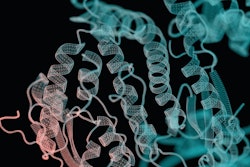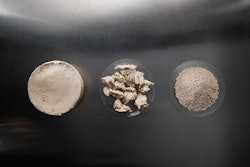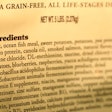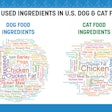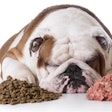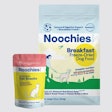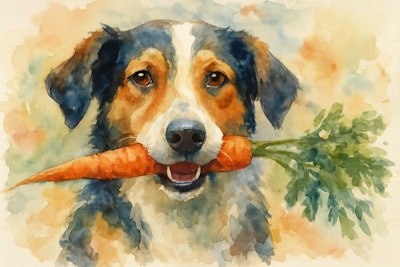
Not every carrot has the perfect conical shape to make it into a bag bound for human consumption. Those crooked carrots and other byproducts of carrot processing have a role to play in the pet food industry. A group of researchers in Colombia evaluated the potential of two upcycled carrot products at dog foods and treats. The food scientists in private laboratories experimented with carrot gummies and carrot sauce made from surplus, malformed or otherwise cast-off carrots. They found that the carrot sauce and gummies were both highly palatable to dogs, and offered textural, microbiological and nutritional options for pet food makers.
“This research underscores the potential of carrot-based products to address the evolving needs of the pet food market, offering a nutritious and sustainable solution that leverages agricultural byproducts effectively and opens avenues for product diversification within the carrot value chain,” the scientists wrote in the journal Applied Food Research.
Carrots are well-established as ingredients in the pet food industry. Carrots are rich in beta-carotene, fiber and phytonutrients that offer antioxidant, digestive, and other health benefits to dogs. In the roots’ most basic form, many dog owners use raw carrots as treats. Carrots appear in many pet foods, especially canned dog and cat foods. In 2017, carrots appeared in 47% of canned dog food recipes and 26% of canned cat food, according to Petfood Industry’s proprietary data.
In their research, the Colombian scientists mixed produce-aisle-ready roots with upcycled carrots that were crooked, malformed or otherwise not marketable to humans, although just as healthy as their picturesque carrot kin.
Two carrot-based products were formulated:
- Carrot Gummies (CG): Developed using gelatin concentrations of 15–25% and thermal treatment times of 5–25 minutes.
- Carrot Sauce (CS): Produced with cornstarch concentrations of 3–10% and identical thermal treatments.
Both products were assessed for texture (hardness, gumminess, firmness), physicochemical parameters (pH, total soluble solids, color), microbiological safety, carotenoid content and palatability.
The texture of both products was significantly influenced by thickening agent concentration and heat treatment:
- Gummies: Increasing gelatin concentration resulted in higher hardness, gumminess and chewiness. A 10% increase in gelatin more than doubled key texture metrics. However, excessive firmness reduced palatability. The researchers suggested that optimal texture must balance structural integrity and chewability.
- Sauce: Cornstarch concentration significantly affected consistency, cohesiveness and adhesiveness. A 7% increase in cornstarch raised consistency 1.37 times and adhesiveness 1.73 times. Texture outcomes were comparable to established thickened sauces used in food processing.
Neither product experienced microbial contamination. All prototypes met Colombian microbiological standards, including non-detectable levels of Salmonella and E. coli and acceptable counts for pathogenic bacteria, molds and yeasts.
Nutrient retention and palatability
The researchers monitored the preservation of the nutrient beta-carotene during processing. Sauce recipes showed carotene concentrations ranging from 1.95 mg/L to 6.66 mg/L. Although no statistically significant degradation was observed, numerical data indicated a mild reduction (~16%) with prolonged thermal exposure.
Two sensory evaluations were conducted:
- Gummies: Tested in 90 dogs of various breeds and ages. Prototype 2 (20% gelatin, 15-minute thermal treatment) showed the highest preference, with 68% of dogs indicating strong acceptance.
- Sauce: Tested in 34 dogs. Prototype 2 (6.5% cornstarch, 15-minute treatment) achieved 91% high acceptance. The scientists suggested that carrot sauce may serve as an effective palatant for dry pet food or as a standalone treat.
Upcycled carrots benefit to industry and environment
While the two carrot products served as healthy dog food ingredients and useful tools for formulators, they could also have benefits for the environment and allow dog food brands to make sustainability claims. Pet food manufacturers can move towards a circular economy by leveraging cast-off carrots. In Colombia, 25–30% of production is classified as residue. At the same time, dog food and treat makers can meet market demand for natural, healthy, sustainable ingredients.
Carrot-based gummies and sauces offer a range of uses from palatants to supplements, while upcycling misfit roots and reducing agricultural waste.





